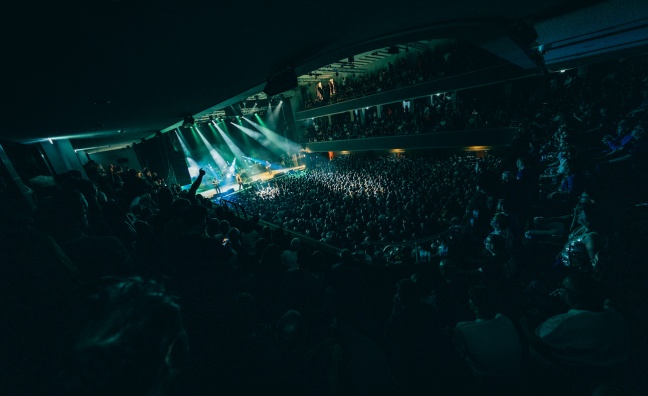UK Music has unveiled new research into the value of gigs, concerts and festivals to local economies.
A total of 19.2 million music fans travelled from within the UK and overseas in 2023 to see UK shows. The line-up of stars performing huge gigs last year included Beyoncé, The Weeknd, Harry Styles and Blur, alongside festivals like Glastonbury, Boomtown and TRNSMT.
UK Music research reveals:
• Total number of music tourists attending live music events across the UK in 2023 was 19.2 million - an increase of 33% on 2022 when the figure was 14.4 million.
• Total music tourism spending in 2023 was £8 billion - an increase of 21% on 2022 when the figure was £6.6 billion.
• Total employment sustained by music tourism in 2023 was 62,000, which is an increase of 17% on 2022 when the figure was 53,000.
• Total number of foreign music tourists in 2023 was 1.014 million, which is a slight drop from 1.053 million in 2022.
• Total number of domestic music tourists in 2023 was 18.2 million, which is an increase of 36% on 2022
A foreign music tourist is someone who has travelled from outside of the UK to attend an event in the UK. A domestic music tourist is defined as those who are travelling from within the UK to see live music events, provided they travelled more than three times an average commute for that region.
Music tourism is a growing part of the music industry. London saw a 40% rise in music tourists from 4.9m in 2022, to 6.9m in 2023.
There was also an 86% increase in music tourists to the South West, rising from one million in 2022, to almost two million in 2023. There was a 29% increase of music tourists in the North East, from 352,000 in 2022 to 489,000 in 2023.
The high-profile Taylor Swift Eras Tour is likely to give a further significant boost to figures for 2024, making the UK one of the global touring centres.
While domestic music tourism is thriving, foreign music tourism has dipped slightly in 2023. This figure is prone to fluctuations as highlighted in previous years.
Music tourism spending is made up of £4.2 billion spent directly by music tourists attending concerts and festivals in the UK, including the cost of a ticket, on-site spend, travel, accommodation, and meals while travelling to events. A further £3.8 billion was spent indirectly through the value chain, including costs such as fencing and security or a restaurant paying for ingredients.
While music generates huge benefits for our local areas, the opportunities for many artists are becoming increasingly squeezed
Tom Kiehl
However, despite the growth in music tourism, independent festivals and grassroots music venues are still struggling with rising costs and changes in ticket-buying habits – Music Week reported on the struggling independent festival sector this week.
The Association of Independent Festivals (AIF) reports that more than 50 UK festivals have completely closed or been postponed or cancelled for 2024. Meanwhile, the Music Venue Trust (MVT) reports that 125 venues in 2023 either shut or stopped live music.
Artists are also facing a cost-of-touring crisis, as a result of inflationary pressures and supply chain issues.
In September 2023, UK Music published its Manifesto for Music and is now calling on the new government to take action.
Culture Secretary Lisa Nandy said: "The UK’s thriving music industry continues to be one of our most powerful global exports and an important driver of economic growth. In towns and cities across the country, the music industry provides entertainment, employment and inspiration to millions.
“This government will work hard to ensure our creative industries get the support they need to flourish, driving opportunity and economic growth into every community and inspiring the next generation of performers."
UK Music chief executive Tom Kiehl said: “In 2023, music pulled more than 19 million tourists into local areas and supported £8 billion of spending in local economies across the UK. This demonstrates the positive impact music tourism has on our towns and cities. But while music generates huge benefits for our local areas, beyond a handful of very successful musicians the opportunities for many artists are becoming increasingly squeezed.
“Grassroots music venues and festivals, studios and rehearsal spaces are facing tough economic pressures and it’s vital that the music ecosystem that enables musicians and artists to perform is supported to ensure that everyone – no matter where they live - can have access to music.”
“We’re looking forward to working with the new government to ensure that all our towns and cities have thriving music ecosystems that support the growth of the – generating thousands more jobs, boosting economic growth and making their areas even more attractive to visitors.”
Last year UK Music’ released the Here, There and Everywhere report that featured a toolkit for local governments to help maximise the opportunities music can bring to their economies.
PHOTO: Blur performing at The Halls, Wolverhampton in 2023 (credit Tom Pallant)











